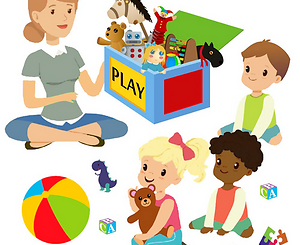Course Title: Child and Adolescent Counseling
Course Description:
The Introduction to Child and Adolescent Counseling course provides an overview of foundational concepts and practical skills necessary for counseling children and adolescents. This short course aims to equip participants with a comprehensive understanding of the unique developmental needs, challenges, and therapeutic approaches when working with young clients. Through a combination of theory, case studies, and experiential exercises, participants will develop the essential skills to effectively support and promote the mental health and well-being of children and adolescents.
Course Duration: 6 weeks (12 sessions)
Course Objectives:
1. Understand child and adolescent development: Explore the physical, cognitive, social, and emotional development of children and adolescents, and understand the impact of various developmental stages on counseling approaches.
2. Recognize common mental health issues: Gain knowledge of common mental health challenges experienced by children and adolescents, including anxiety, depression, trauma, behavioral disorders, and self-esteem issues.
3. Develop therapeutic rapport and communication: Learn effective strategies to establish trust, build rapport, and establish a therapeutic alliance with child and adolescent clients, including age-appropriate communication techniques.
4. Apply play therapy techniques: Explore the principles and techniques of play therapy, a primary modality for counseling children, and understand how to utilize play as a therapeutic tool to facilitate expression, communication, and healing.
5. Utilize cognitive-behavioral techniques: Learn fundamental cognitive-behavioral techniques tailored for children and adolescents, including cognitive restructuring, relaxation exercises, and problem-solving skills.
6. Implement expressive arts therapy: Understand the principles and applications of expressive arts therapy as a creative and therapeutic approach to help children and adolescents express themselves, process emotions, and gain insights.
7. Address family dynamics: Recognize the influence of family dynamics on child and adolescent mental health and develop strategies for involving and collaborating with families in the counseling process.
8. Assess and provide crisis intervention: Acquire skills to identify and assess crisis situations in children and adolescents, and learn crisis intervention techniques to ensure immediate safety and appropriate referrals.
9. Cultivate self-care strategies: Explore the importance of self-care for counselors working with children and adolescents, and develop self-care strategies to prevent burnout and promote personal well-being.
10. Ethical considerations in child and adolescent counseling: Understand the ethical and legal considerations specific to counseling minors, including informed consent, confidentiality, and boundaries.
Teaching Methodology:
The Introduction to Child and Adolescent Counseling course utilizes a variety of teaching methodologies to create an engaging and interactive learning experience, including:
– Lectures and presentations: Instructors will deliver informative lectures and presentations to introduce theoretical concepts, research findings, and evidence-based interventions.
– Case studies and experiential exercises: Participants will engage in case studies and experiential exercises to apply theoretical knowledge to practical counseling scenarios.
– Group discussions: Participants will have opportunities for group discussions to share insights, perspectives, and experiences related to child and adolescent counseling.
– Role-playing and simulations: Participants will engage in role-playing exercises and simulations to practice counseling techniques and enhance their therapeutic skills.
– Guest speakers: Experienced child and adolescent counselors or experts in the field may be invited to share their expertise and provide real-world insights.
– Self-reflection and self-assessment: Participants will engage in self-reflection activities to enhance self-awareness, explore personal biases, and promote professional growth.
By the end of this course, participants will have gained a solid foundation in child and adolescent counseling, empowering them to effectively address the unique mental health needs of young clients and contribute to their overall well-being and resilience.
Course Features
- Lectures 32
- Quizzes 5
- Duration 6 weeks
- Skill level All levels
- Language English
- Students 3
- Certificate Yes
- Assessments Yes





